MercoPress. South Atlantic News Agency
Tag: Aedes aegypti
-
Friday, April 12th 2024 - 22:20 UTC
Brazil accounts for nearly 70% of dengue cases in LatAm and Caribbean
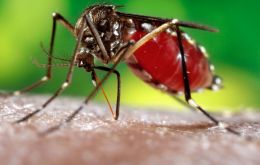
According to a survey conducted by the Pan American Health Organization (PAHO), Brazil accounted for almost 70% of dengue cases in Latin America and the Caribbean, where some 4.6 million infections were confirmed this year, representing a 237% interannual increase, Agencia Brasil reported. PAHO is the arm of the World Health Organization (WHO) in the Americas.
-
Thursday, April 11th 2024 - 18:58 UTC
Uruguay: Number of dengue cases on the rise in Salto
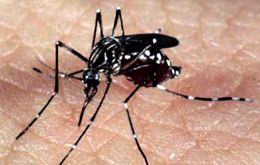
Uruguayan health authorities have expressed their concern about the recent increase in the number of cases of dengue fever in the town of Salto, where over 130 detections have been confirmed.
-
Monday, April 1st 2024 - 12:32 UTC
Uruguay reports 224 case of dengue disease transmitted by mosquitoes
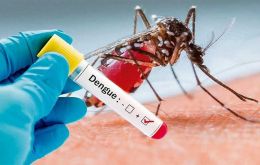
Uruguay has reported 224 cases of the mosquito transmitted disease dengue, including three related deaths, of which 113 are identified as autochthonous and 111 imported, according to the latest release (March 30) from the country's Public Health Ministry, MSP. The release also mentions imported cases of chikungunya (1) from Brazil and zika (2) from Southeast Asia.
-
Saturday, December 9th 2023 - 08:32 UTC
Case of type 4 dengue reported in Rio de Janeiro

Health officials in the Brazilian city of Rio de Janeiro have confirmed a case of type 4 dengue fever, which has not been seen in the area since 2018, Agencia Brasil reported. In response, measures are being considered to control the spread of the mosquitoes that transmit the disease (Aedes aegypti). More than 6,000 dengue virus cases have been identified this year, with 5,532 type 1 cases, 820 type 2 cases, and only one type 4 case.
-
Wednesday, February 3rd 2016 - 06:32 UTC
US reports first known case of Zika virus transmission through sex
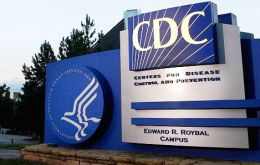
The first known case of Zika virus transmission in the United States was reported in Texas on Tuesday by local health officials, who said it likely was contracted through sex and not a mosquito bite, a day after the World Health Organization declared an international public health emergency.
-
Monday, February 1st 2016 - 06:12 UTC
WHO Emergency committee meets in Geneva to address the Zika virus situation
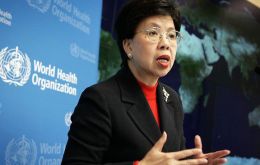
The World Health Organization Director-General Margaret Chan has briefed on the Zika virus situation. In the briefing Ms Chan gave a brief history of the disease and explained why WHO is so deeply concerned.
-
Tuesday, January 26th 2016 - 08:06 UTC
Pan American Health Organization statement on Zika virus transmission and prevention
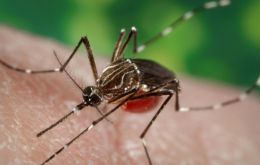
Zika is a mosquito-borne virus that is new to the Americas. Since Brazil reported the first cases of local transmission of the virus in May 2015, it has spread to 21 countries and territories* of the Americas (as of 23 January 2016).
-
Friday, May 22nd 2015 - 08:48 UTC
Caribbean epidemiologic alert following reports of Zika virus in Brazil
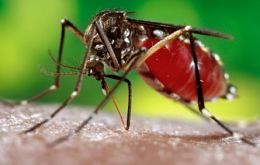
Following reports of suspected Zika virus in Brazil, the health ministries of several Caribbean countries have issued advisories for the mosquito borne viral disease.On Thursday, the Jamaica Health Ministry issued an epidemiological alert after the Pan American Health Organization (PAHO) noted the potential spread of this arbovirus across territories where the vectors (Aedes) are present.
-
Tuesday, May 20th 2014 - 08:48 UTC
Brazil World Cup host cities with an early warning system for dengue
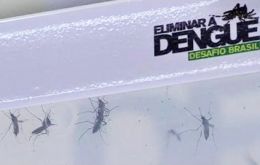
A heightened risk of an outbreak of dengue fever during the upcoming soccer World Cup in Brazil has prompted a high alert in three out of 12 host cities. For the first time, scientists have developed an early warning system that predicts the risk of dengue fever infections throughout parts of Brazil.
-
Monday, April 21st 2014 - 06:28 UTC
Brazil attempts to combat dengue with GM mosquitoes

The world’s largest ever swarm of genetically modified mosquitoes has been released in a Brazilian town to combat dengue -- a leading cause of illness and fatality in several Mercosur countries, except for Uruguay.
